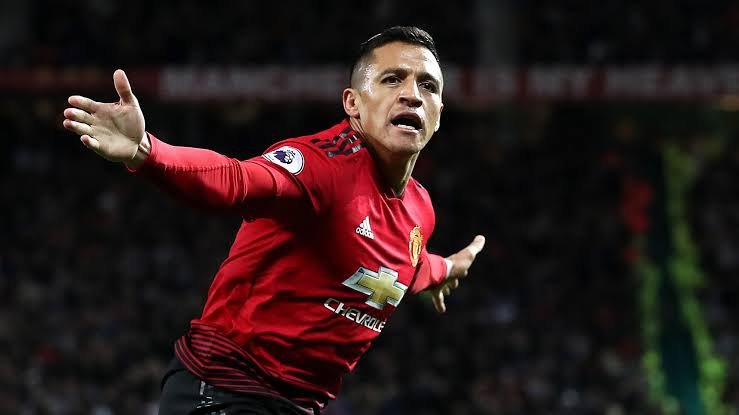When Alexis Sanchez arrived at Manchester United in January 2018, expectations were sky-high. The Chilean forward, who had been a shining star at Arsenal, was hailed as one of the most exciting talents in the Premier League. However, his much-hyped move to Old Trafford turned out to be a massive disappointment, leaving fans and analysts baffled. So, why did one of Arsenal’s brightest talents fail to replicate his success at Manchester United? Let’s explore the factors behind Sanchez’s dramatic decline.
The Arsenal Years: A Superstar in Full Flight
Before his ill-fated transfer, Sanchez was a key figure at Arsenal, where he flourished under Arsène Wenger’s attacking system. Between 2014 and 2018, he was the club’s talisman, contributing:
- 80 goals and 45 assists in 166 appearances.
- Match-winning performances, including a brace in the 2015 FA Cup final.
- Tireless work rate, dazzling dribbles, and an eye for goal.
Sanchez’s versatility, playing both as a winger and a central forward, made him indispensable to Arsenal. His ability to create and score goals single-handedly earned him a reputation as one of the league’s elite players.

The Blockbuster Move to Manchester United
Manchester United’s pursuit of Sanchez in January 2018 was a high-stakes transfer saga. The club outbid rivals Manchester City, offering him a reported £500,000-a-week contract, making him the highest-paid player in the Premier League at the time. The deal also involved Henrikh Mkhitaryan moving to Arsenal in a swap agreement.
The anticipation was immense. United fans expected Sanchez to add creativity, goals, and leadership to a team already boasting stars like Paul Pogba, Romelu Lukaku, and Anthony Martial. But the reality was starkly different.


Why Did Alexis Sanchez Flop at Manchester United?
- Tactical Misfit One of the primary reasons for Sanchez’s failure was his incompatibility with Jose Mourinho’s system. While Wenger’s Arsenal allowed Sanchez the freedom to roam and express himself, Mourinho’s rigid, defense-oriented approach stifled his creativity. Sanchez often found himself isolated on the left wing, struggling to influence games. Additionally, Mourinho’s preference for a counter-attacking style did not suit Sanchez’s strengths. The lack of cohesive attacking patterns meant the Chilean was frequently left to chase loose balls and engage in battles far from goal, which hindered his effectiveness.
- Injury Troubles Sanchez’s time at Manchester United was marred by recurring injuries. Hamstring and knee issues limited his playing time and disrupted his rhythm. By the end of his first full season, he had made only 27 appearances in all competitions, scoring a mere 2 goals. These physical setbacks not only reduced his explosiveness but also undermined his confidence, making it harder for him to regain form.
- Loss of Confidence and Form Confidence is crucial for any footballer, and Sanchez’s quickly evaporated at Manchester United. His body language on the pitch reflected frustration and self-doubt. He frequently misplaced passes, took ill-advised shots, and failed to link up effectively with teammates. The weight of expectations, combined with his massive salary, added to the pressure. Fans and pundits scrutinized his every move, further compounding his struggles.
- Team Dynamics and Dressing Room Atmosphere Sanchez’s arrival reportedly caused friction within the Manchester United dressing room. His astronomical wages upset the wage structure and created resentment among other players. The likes of Pogba and De Gea, who were integral to the team, were reportedly unhappy with their comparatively lower salaries. Moreover, Sanchez’s playing style clashed with key players, particularly Martial and Rashford, who were often sidelined to accommodate him. This disruption to the team’s balance affected overall performance.
- The Decline of Sanchez’s Physical Abilities By the time Sanchez joined United, there were already signs of decline. At 29, his high-energy playing style and relentless pressing at Arsenal had taken a toll on his body. His explosiveness and agility, which were central to his game, began to wane. Furthermore, his inability to adapt his style to compensate for this decline made him less effective in a physically demanding league like the Premier League.
The Fallout and Exit
Sanchez’s tenure at Manchester United lasted less than two years. In total, he made 45 appearances, scoring just 5 goals. His performances drew widespread criticism, and he was eventually loaned to Inter Milan in August 2019 before making the move permanent in 2020.
At Inter, Sanchez showed glimpses of his old self, contributing to the team’s Serie A triumph in the 2020-21 season. However, he never regained the consistent brilliance he displayed at Arsenal.
Lessons from the Sanchez Saga
The Alexis Sanchez saga at Manchester United offers several lessons for clubs and players alike:
- Fit Over Fame: High-profile transfers should prioritize tactical compatibility over star power. Sanchez’s move highlighted the importance of aligning a player’s strengths with the team’s playing style.
- Managing Expectations: Unrealistic expectations and excessive pressure can negatively impact players, even seasoned professionals.
- Financial Prudence: The astronomical wages offered to Sanchez created internal disruptions and set a dangerous precedent for wage negotiations.
- Adapting to Change: Players must evolve their game as they age. Sanchez’s inability to adapt to his physical decline limited his effectiveness.
Conclusion
Alexis Sanchez’s move to Manchester United remains one of the most puzzling transfer flops in Premier League history. A combination of tactical misfit, injuries, loss of confidence, and team dynamics contributed to his underwhelming performances. While his legacy as a footballer is secure thanks to his exploits at Arsenal and Barcelona, his stint at United serves as a cautionary tale for clubs chasing marquee signings without proper planning.
Ultimately, Sanchez’s story is a reminder that football success relies on more than talent—it requires the right environment, management, and adaptability to thrive at the highest level.
Do follow Uae stories for more Updates
Shop GAP Men’s Panelled Training Shoes with Lace-Up Closure Online at Centrepoint UAE














